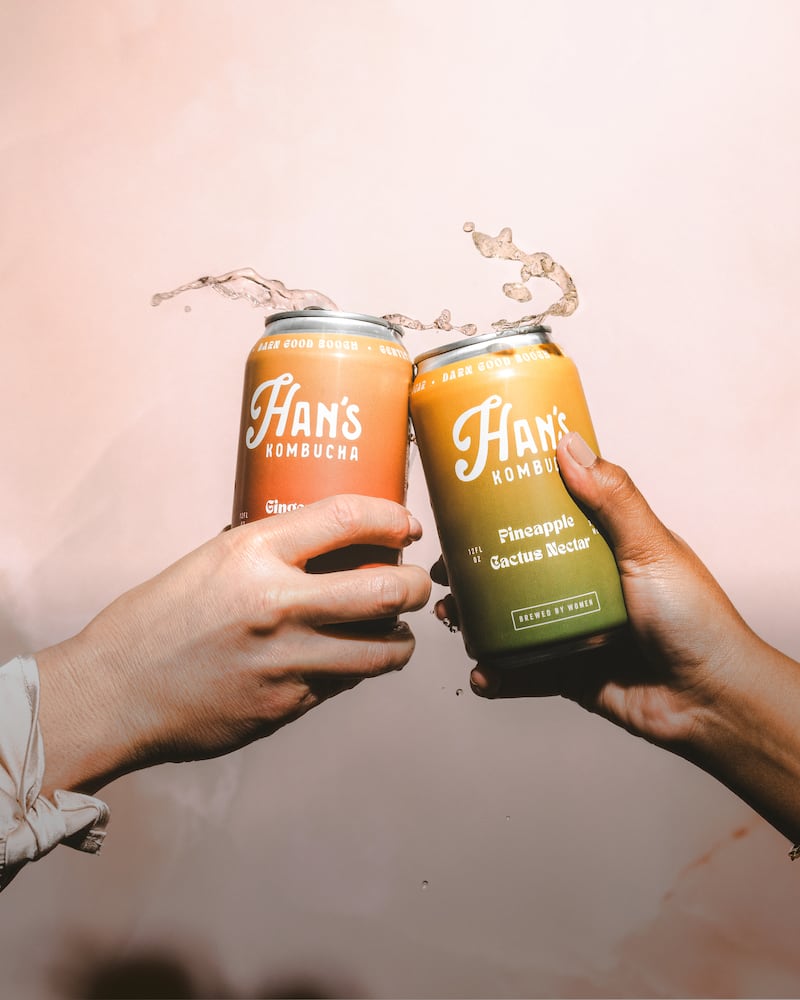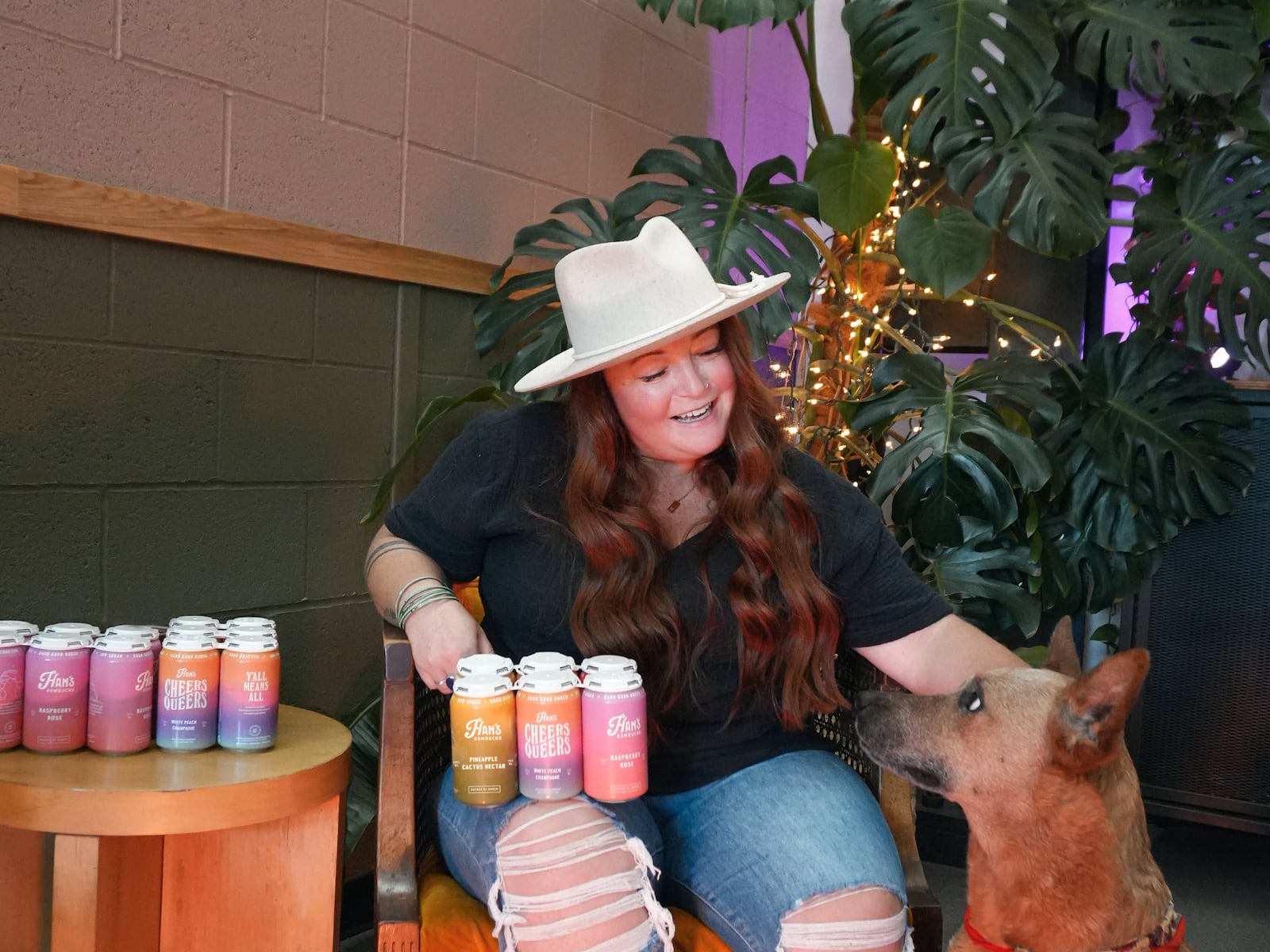This story appears in the October issue of Utah Business. Subscribe.
In 2015, my business partner Hannah Hendrickson received a book by Hannah Crum — who is primarily considered the mother of our industry — along with a SCOBY (a symbiotic culture of bacteria and yeast). This culture is used to create the fermented, tea-based drink we know as kombucha. Hannah kept this pastime tucked away, brewing in her closet, and continued doing so into her university years. The more she brewed, the better she became at doing so.
Hannah enjoyed the science behind creating kombucha. Though she hadn’t taken any chemistry classes, her work in the pharmaceutical world allowed her to better understand how it helped people. Kombucha is, in fact, natural medicine, and she fell in love with creating it. She loved watching the variants and how following the same small-batch recipe always produced slightly different results because it’s essentially alive. She’s a tinkerer; it’s how her brain works. Brewing kombucha was an outlet for her to understand a new process while utilizing her passion for public health in a way that felt good for her.
The people she shared her kombucha with shared it with their friends, creating a chain reaction of positivity. The feedback she received was consistently good. Somebody even suggested she should sell it instead of giving it away. It could take up to 30 days to create a single batch, so it really was a labor of love.
The more she considered selling her creations, the more she warmed up to the idea. A friend created a label for her that borrowed her nickname (Han), and Han’s Kombucha got its rather humble start in 2018. From there, she started knocking on doors. Creek Tea was her first account, and in no time, she picked up half a dozen more. It was around that time that we met.
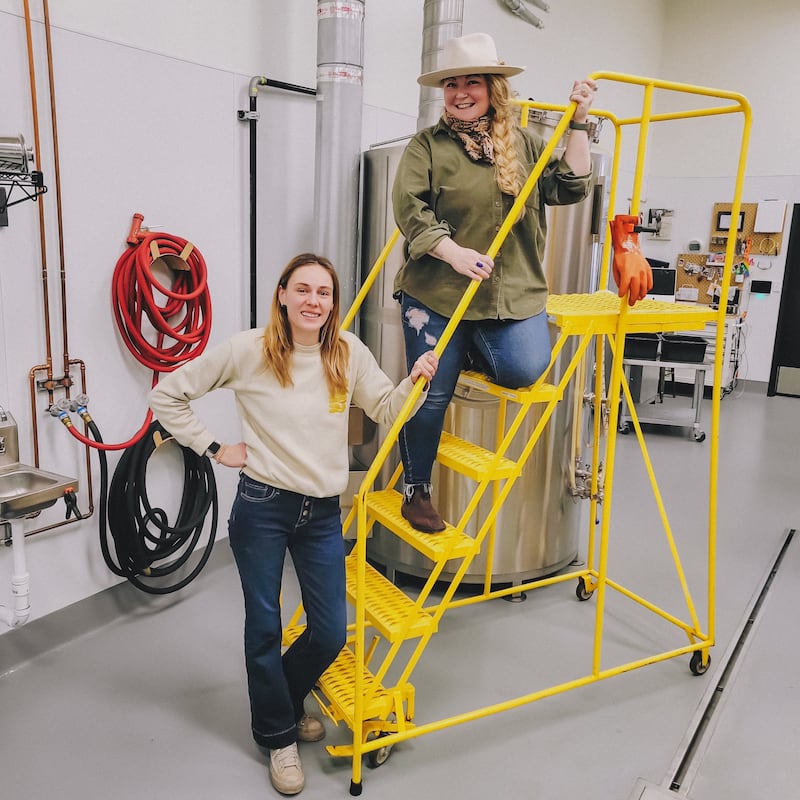
A woman-owned business begins
Our eventual partnership came together naturally. In my 25 years in the food and beverage industry, I have held every possible position. I was working as a consultant for a decade before meeting Hannah.
I was asked to move back to Salt Lake City by the owners of Emigration Brewing Co., which was mid-construction. The design wasn’t coming together cohesively, and they were stuck. Once we connected, I helped redesign their kitchen and overall space. When Hannah learned beverages would be sold at a market cafe there, she felt it was another perfect spot to sell her product.
I agreed with her. Besides, I wanted to empower a young woman just starting a business. I’d had my challenges and wanted to save her some of those same heartaches, and I helped get her kombucha on Emigration’s shelves. That led to some phone calls and shared business advice. Before I knew it, she asked if I wanted to partner with her, and I accepted.
The next step was establishing a place where we could regularly create more kombucha. Many people enjoyed the product already, and our list of wholesale accounts was growing. But a piece of the puzzle was missing: People wanted to drink the kombucha we created with us in a space where they could sit down and be surrounded by the same elements that reflected our brand.
It meant building a community-focused retail, front-of-house operation. Immediately, we began looking at commercial properties all over, from West Valley to Sandy to North Salt Lake to Marmalade to Sugar House. Overall, we probably visited over 50 commercial properties across the state.
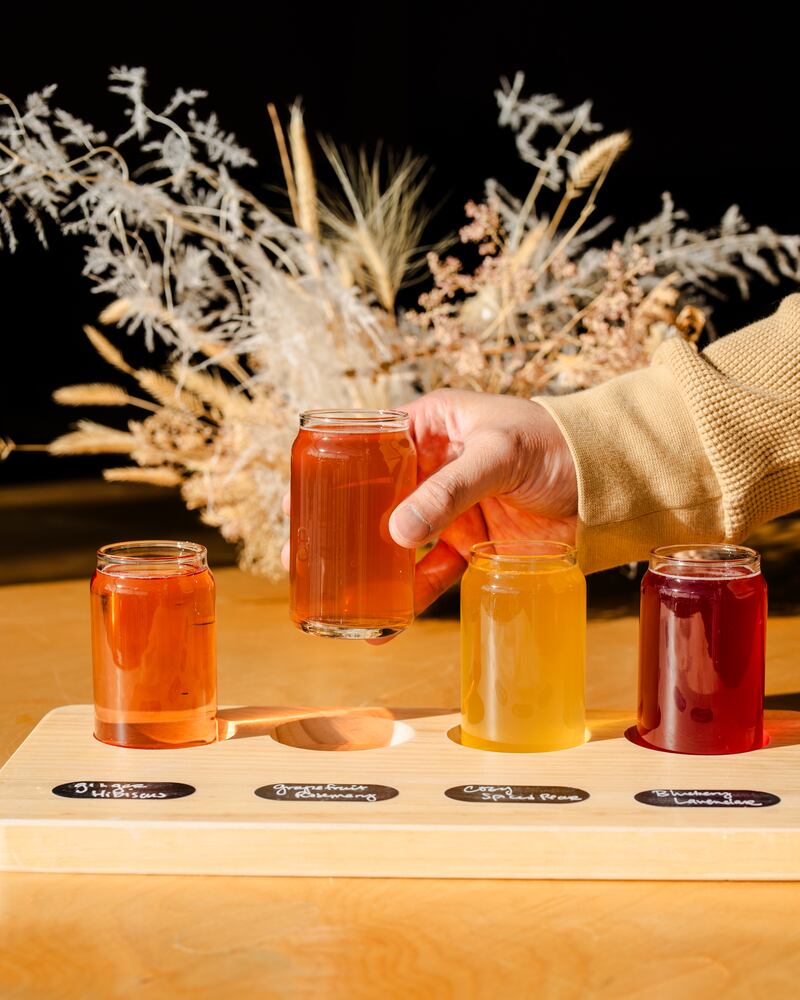
In the end, the Ballpark District appealed to me. I loved the old industrial area. With the growth of the city and state, we hoped we could attract some grant money to this overlooked area and allow for real incentives in the neighborhood. When we finally found an old Cummins diesel repair station with a 15-ton gantry crane overhead, we decided right away it was the spot we wanted. It would be the new home of Han’s Kombucha.
The sober-curious culture was growing in Utah and internationally, which was intriguing. At the same time, the hard kombucha industry was also on the rise, but I had a gut feeling that Utah wasn’t quite ready for that yet. While our consumer base wasn’t prepared for a strictly non-alcoholic kombucha bar, we knew we wouldn’t be able to establish our brand of Han’s Kombucha while also having an alcoholic version of it within Utah. We would need to have completely separate labels, and a whole new brand would be necessary, which sparked the idea of a parent company: HK Brewing Collective.
HK Brewing Collective is the parent company of Han’s Kombucha (which is the only brand we have now but hopefully not for long). The HK stands for Hannah and Kate as well as Han’s Kombucha. The intention for us 5-10 years from now is for the collective to offer both alcoholic and non-alcoholic brands, provided they feel authentic to our messaging and what we stand for. Is the product good for you? Is it going to facilitate goodness for the community? All brands we create will reflect that and will be “DARN GOOD” (a slogan we’ve adopted).
Part of that community aspect means collaborating with neighboring businesses, brewers and local farmers, which has been our intention since the beginning. We work with industries that come together in a symbiotic way, which feels right to do. When you think of kombucha, it’s a culture of symbiosis. It’s helping your microbiome — your gut — and your gut controls the rest of your body. Joining forces with local masterminds rang true to our path and still does.
Utah needed more time before we introduced a packed house five nights a week with people slamming pitchers of kombucha. Providing options was essential, so including alcohol and having a bar license was the direction we needed to take. We could dip our toes in the craft zero-proof cocktail and craft cocktail industries, using local herbs and fresh-pressed juices and finding ways to make them work together. So far, our consumers tell us it’s working.
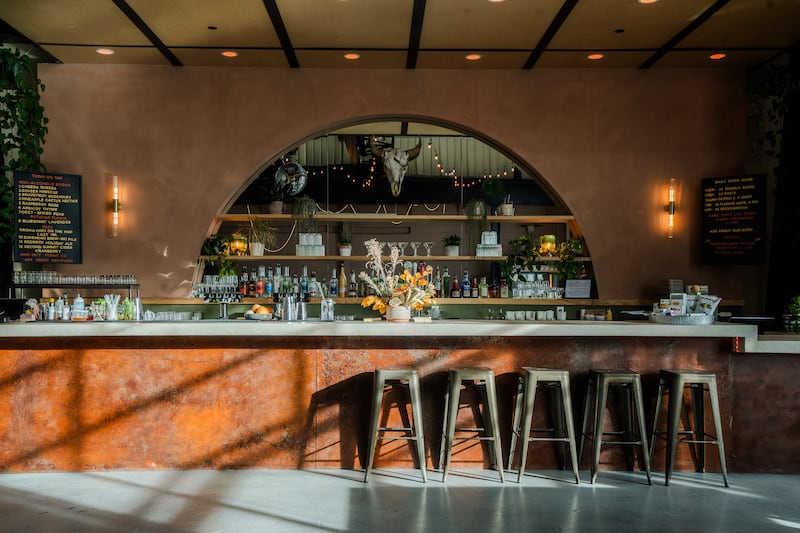
Becoming a community staple
The food and beverage industry is primarily known as one of the most demanding industries to work in because of the constant change that comes with it, especially in the state of Utah. As an owner-manager, the profit margins are terrible, but there’s a real opportunity for us to excel at service. We get to talk with guests and see them come together, whether it’s for a glass of kombucha or a locally-made empanada. Creating a space for that to happen has always been important to me.
I’ve been successful at learning how to penny-pinch down to hundredths of a penny, sometimes alongside people who were very difficult to work with. This venture allows me to cultivate a place where, if I see my staff coming in and hanging out outside of their shifts, eating and drinking at the place they usually work, that’s a slam dunk. When they want to be here after they’ve been here all day, I know we’ve cultivated the right environment — a safe and inclusive space for everyone. I’ve done that for many others, but now I get to do it for myself and for Hannah. We’re a women-owned business, and I am very passionate and outspoken about our future direction and all we want to achieve.
Creating what we have has felt special. We wanted to open an inclusive space. While we talk about having an overall message of support, it has to be more than that. We must do more than talk. If Han’s Kombucha can be a bridge for gaps in this community as a place to come together, then we will be. We’re going to be.
It feels good to be doing this, especially with Hannah. Her strong suits are very much my weaknesses, and vice versa. That’s what you want out of a business partner. In a short amount of time, our partnership has blossomed. We have had our challenges, yes, and we didn’t know anything about each other before tackling this venture. In a pretty sudden way, we started a business amid a global pandemic and spent 60-70 hours a week together. That’s allowed us to grow as friends and partners in a short amount of time.
It is so gratifying to see somebody come to our taproom and not want to leave. Whether our customers plan to work remotely for an hour or meet up for one drink, the same scenario happens every week: three and a half hours later, they’re still here. They will remark that it feels like home and is very comfortable. That’s the exact kind of environment we wanted to create.
We brought the old diesel repair station to life by adding plants and greenery. We have tried to pay attention to even the most minor details. Our hope is that people will feel like they’re hanging out in their own backyard, and we’re proud to have pulled that off so far.
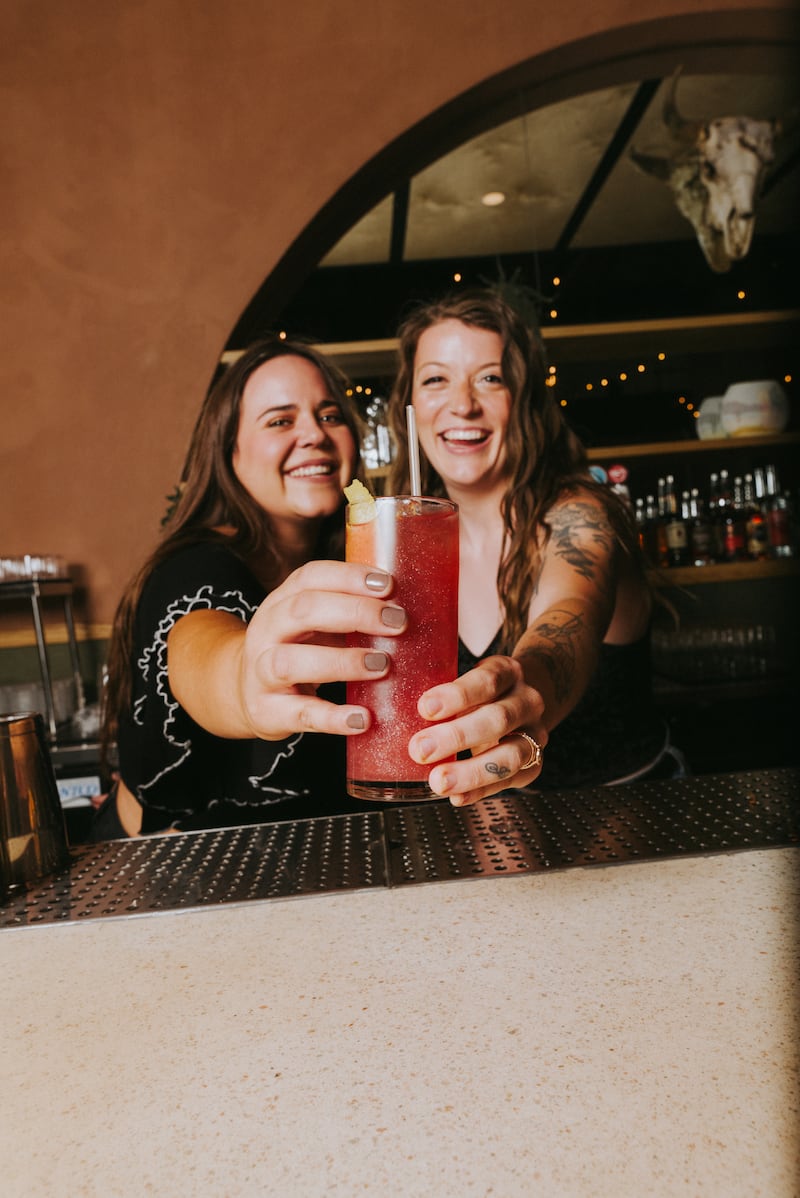
Raising a glass to the future
Even though Han’s started in 2018, Hannah was brewing for years prior. When we met, she had dozens of one-gallon jars that she was brewing kombucha out of, but we were hardly professional brewers. We built a brew house without knowing how the wildly expensive stainless steel equipment operated. We’ve progressed from those one-gallon jars to five-gallon containers to 15-gallon containers. Today, we use 500-gallon fermentation tanks with SCOBYs that weigh 100+ pounds each. It has required a steady, demanding education, but we’re stronger for it and have learned so much.
It’s wild to see how far we have come and how much further we still have to go. We run a marathon every day, not a sprint. I often look in the mirror and remind myself that we’re at the mercy of a live, growing being. Sometimes, we must step back and realize we must be more like the SCOBY. We need to be patient, adapt, pivot, change and grow.
If you’re on a similar path, you may feel like giving up sometimes. My advice is simple: Don’t do it. Know that it’s OK to make mistakes. Know that it’s OK to need help. If you’re in your industry for a quick buck and fast cash and don’t love going to work every day, find a way to pivot elsewhere. Many people pick up jobs as side gigs in the food and beverage industry. While that is common, there are significant opportunities here. There are support systems for women specifically. The resources, including the Women’s Business Center, are excellent. I wish more people would ask for help and know they don’t have to do everything on their own.
When Hannah started brewing kombucha, what we are doing now was not on her radar. It’s good to be open to where the journey takes you, in business or life. Kombucha isn’t just a “good for you” beverage — it can be a substitute for an alcoholic beverage or for people in recovery. I believe it can tie the human race and different communities together. As we grow our industry, I hope we can help people at the same time.
